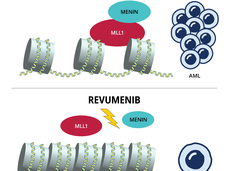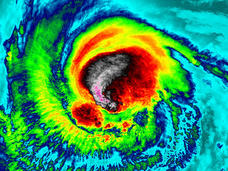April 2023 - Cancer Currents Blog
-
Multiple mRNA Vaccines Show Promise for Treating HPV-Related Cancers
A new study has compared three formulations of an mRNA vaccine designed to treat cancers caused by human papillomavirus (HPV) infections. All three vaccines showed promise in mice.
-
Financial Navigation Can Reduce the Financial Toxicity of Cancer Care
The high cost of cancer care can cause added distress and life disruptions for patients as well as their loved ones. Researchers at the University of Kentucky Markey Cancer Center found that a financial navigation program saved patients and their loved ones an average of about $2,500 each.
-
Revumenib Shows Promise in Treating Advanced Acute Myeloid Leukemia
Treatment with revumenib caused complete remission in about one-third of participants in an early-phase clinical trial involving patients who’d had many prior treatments. Revumenib is part of a new class of targeted drugs known as menin inhibitors.
-
Transforming Cancer Clinical Trials for Better, Faster Results
In this Q&A, NCI Director Dr. Monica Bertagnolli and Deputy Director for Clinical and Translational Research Dr. James Doroshow explain the challenges of cancer clinical trials and important steps NCI is taking to improve their effectiveness.
-
Immunotherapy’s Role in Treating Endometrial Cancer Expected to Grow
In two clinical trials, combining immune checkpoint inhibitors with standard chemotherapy substantially increased how long people with advanced endometrial cancer lived without their cancer worsening, particularly those with dMMR or MSI-high tumors.
-
Liquid Biopsies on the Horizon for Children with Solid Cancers
Results from a new study highlight the progress being made toward developing liquid biopsies specifically for use in children with solid cancers like Ewing sarcoma and Wilms tumor. The tests can help detect and diagnose cancer and monitor for response to treatment and recurrence.
-
Cancer and Climate Change: The Health Threats of Unnatural Disasters
The consequences of climate change have already affected cancer care in the United States, particularly in areas hit by hurricanes and wildfires. Researchers are studying how to mitigate that impact and better understand the effect of climate change on the risk of developing cancer.





